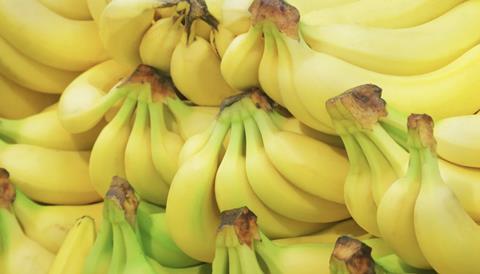US plan to place port fees on China-built vessels will impact trade, according to Dole
Leading banana supplier Dole has testified that plans to implement new port fees on Chinese-built vessels will cause banana prices to rise in the US.

According to a report from Bloomberg, Jared Gale, chief legal officer and company secretary for Dole, testified at a hearing in Washington DC about a US Trade Representative (USTR) proposal for port fees.
The proposal calls for fees on Chinese-built vessels, and fleets that contain Chinese-built vessels or have vessels on order from China.
“The US fresh fruit trade would be severely impacted by this proposed fee, but so would the consumer,” Gale said.
He said bananas are transported from the tropics on small, refrigerated vessels that make frequent trips and unload in the US at multiple small and regional ports. The low profit margin on bananas meant the addition of extra fees would have a swift and noticeable effect on prices.
Gale said Dole operates its own fleet of specialised ships, four of which were built in China. There were no other options in the U.S. or on the second-hand market when those ships were purchased, he said.
According to a report from Reuters, Gale said Dole makes 300 US port calls annually and higher port fees would either make bananas too expensive for consumers or financially unaffordable for the company to import.
The World Shipping Council also expressed its objection to the proposal at the hearing. Chief executive Joe Kramek said it would aggravate inflation for US consumers and businesses, threaten jobs, and have especially negative impacts on US farmers and other exporters.
“These proposals will result in increased costs for US exporters and consumers as well as supply chain inefficiencies, while failing to provide China with effective incentives to alter its acts, policies, and practices,’’ Kramek said.
“Economic impacts would reverberate throughout the economy, adversely impacting businesses, consumers, and especially farmers who export price-sensitive commodities.”



